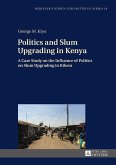This book presents a framework for designing and implementing technologies to reduce risks in parliamentary decision-making, leading to the emergence of e-politics. It emphasizes adaptable virtual systems and problem-solving over predefined solutions, fostering multi-helix engagement among cross-functional teams. These teams collaborate to develop strategic, tactical, and operational solutions for citizens, elected parliamentarians, and organizations such as the UN. The book underscores the importance of risk identification, mitigation, and communication for e-political system safety.
The framework leverages technology to create an e-democracy, enhancing the productivity of parliamentarians and promoting democratic sustainability. It builds on the theoretical framework of system engineering, aiming to avoid the pitfalls of previous generations' promises and instead focusing on continuous improvement through a people-centric system. The book introduces the PI App as a purposive technology that aids in implementing these ideas.
By promoting an ever-improving parliament and parliamentarians, the framework aims to achieve higher productivity in decision-making roles and evolve practical e-democracy. It highlights the need for a Virtuous Cycle for continuous improvement in strategic decisions for national investment, ultimately leading to a people-centric system. The book envisions a future where technology plays a crucial role in ensuring democratic sustainability and enhancing the effectiveness of parliamentary decision-making.
The framework leverages technology to create an e-democracy, enhancing the productivity of parliamentarians and promoting democratic sustainability. It builds on the theoretical framework of system engineering, aiming to avoid the pitfalls of previous generations' promises and instead focusing on continuous improvement through a people-centric system. The book introduces the PI App as a purposive technology that aids in implementing these ideas.
By promoting an ever-improving parliament and parliamentarians, the framework aims to achieve higher productivity in decision-making roles and evolve practical e-democracy. It highlights the need for a Virtuous Cycle for continuous improvement in strategic decisions for national investment, ultimately leading to a people-centric system. The book envisions a future where technology plays a crucial role in ensuring democratic sustainability and enhancing the effectiveness of parliamentary decision-making.








